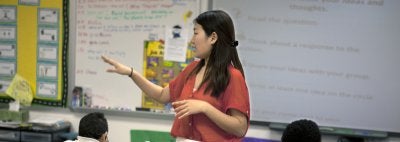

Department of Teaching and Learning, Policy and Leadership (TLPL)
Teacher Education

At the University of Maryland College of Education, teacher education is being reimagined.
Teachers are the most important school-based factor affecting student learning. An excellent teacher can transform learning for thousands of students over the course of their career. Yet, at the state and national levels, there are teacher shortages that pose serious challenges for the field of education.
Reflecting the needs of today’s classrooms, our teacher education programs prepare students to work with diverse student populations and are designed to address critical teaching shortages in special education, science, math, and TESOL. By incorporating evidence-based practices and testing innovations in the classroom, our programs evolve with and help inform the field of teacher education. And through strong partnerships with local school districts, we have developed 'grow your own' programs to prepare a high-quality, diverse teacher workforce that helps meet local and state staffing needs.
Our scholars research ways to improve teacher education for the benefit of students and teachers and respond to pressing issues in education. For example, we examine ways to better prepare science and math teachers—including high-leverage practices like the use of technology in the classroom and ways to increase teachers’ STEM knowledge and ability to teach these concepts to their students. Our researchers are developing a trauma-sensitive curriculum for preschool to address important needs for early educators—and their students. Our work developing core practices for novice TESOL teachers helps serve the needs of the fastest growing U.S. student population.
Our strategic location in the nation's capital, a diverse metropolitan area, and wealth of collaborative partnerships, catalyzes our research and teacher preparation programs to advance equity and excellence in education and society.
Jennifer King Rice
Senior Vice President and Provost
UMD College of Education
Preparing a Diverse and Culturally Competent Workforce
Lawrence Clark
Associate Professor
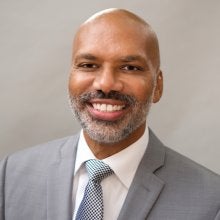
He has conducted quantitative and qualitative studies on how teachers’ mathematical knowledge, beliefs, dispositions, and racialized experiences shape their interactions with students. A thread of his research focuses on the role African American mathematics teachers plays in the lives of African American mathematics learners. An emerging thread of his research is the exploration of implicit bias in mathematics classrooms.
Dr. Clark served as principal investigator on the NSF-funded Robert Noyce Mathematics Teacher Scholarship Program. He is the co-director of Mathletics, which is a summer camp designed to engage students in data analytics through contextualizing statistics in sports contexts. Funded by the US National Security Agency and the Mathematics Association, the Mathletics program is held at the university and serves middle schoolers from area schools.
Taharee Jackson
Assistant Professor

Dr. Jackson served as a Fulbright Scholar, and is committed to working on the preparation, support and long-term retention of urban educators who maintain high standards of social justice and equity in their teaching.
Dr. Jackson has contributed to a number of publications in diverse outlets such as Race, Ethnicity, and Education, Racism Review and Diverse Issues in Higher Education. Her work has received support from numerous sources, including the American Association of University Women American, the Support Program for Advancing Research and Collaboration and the Consortium on Race, Gender, and Ethnicity.
Advancing Math and Science Teaching
The Center for Math Education
Daniel Chazan, CfME Director and Jean, Jeffrey, and David Mullan Professor of Teacher Education

Dr. Chazan oversees UMD’s nationally prominent Center for Mathematics Education, which conducts research and development, teaching, and service that focuses on improving school and college mathematics teaching and learning. With a commitment to advancing equity, the Center’s work benefits from the diversity in local school systems, enabling faculty to research math education that addresses the needs of English language learners and other historically underserved groups.
He is the principal investigator for The LessonSketch Research + Development Fellows Project, which involves creating rich media-based materials for teacher education, including videos, animations, and other on-line resources. The $2.6M NSF-funded joint project of CfME and the University of Michigan explores how web-based resources and tools can support the work of teacher educators. The program’s twelve research fellows create mathematics teacher education materials, which a national network of teacher educators pilots.
Diane Jass Ketelhut
Associate Professor
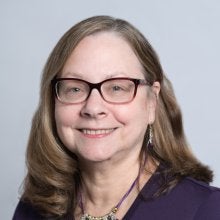
Dr. Ketelhut is the principal investigator for a $1.4 million grant from the National Science Foundation that aims to improve the ability of teachers to provide young children a foundation in computational thinking, in order to increase access to and diversity in the field of computer science.
She conducts research on virtual reality in the classroom, examining how immersive environments can increase student learning and self-efficacy by drawing on the benefits of situational learning without leaving the classroom. Virtual environments, where each keystroke is recorded, also enable a more robust way for teachers to assess student performance.
Fostering Language and Literacy Development
Megan Madigan Peercy
Associate Professor
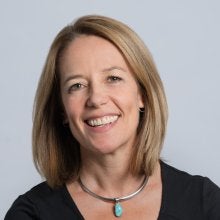
Her Voices from the Field project convenes COE preservice and early career ESOL teachers, along with teacher educators in the doctoral program, to explore teaching practices for English language learners, provide collaborative peer support and self-care, and examine best practices for teaching linguistically and culturally diverse learners. She conducts observations and interviews with teachers to develop core practices for novice ESOL teachers, helping to better prepare teachers for instructing English language learners.
John O’Flahavan
Associate Professor

Writing instruction and achievement in the U.S. has been a persistent challenge, with many students never reaching writing proficiency during the K-12 pathway. One of his projects, which has been implemented in area schools, anchors writing instruction in the three core discourses--narrative, informative and argumentative genres--and develops children’s skills as consumers, critics and producers of these discourses.
Early Childhood/Special Education and Special Education
Christy Tirrell-Corbin
Clinical Professor
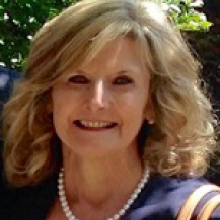
Dr. Tirrell-Corbin recently launched a preschool curriculum for four-year-olds, funded by the Maryland State Department of Education and in partnership with the Smithsonian Museum and Apple, which is being piloted in 65 classrooms. This in-depth, project-based learning curriculum addresses strategies for teaching English Language Learners and students with disabilities and will ultimately be free-of-charge to prekindergarten classrooms in Maryland.
Dr. Tirrell-Corbin is the executive director of the Center for Early Childhood Education and Intervention and is the director of the College's Early Childhood/Early Childhood Special Education program
Sarah B. Mallory
Assistant Clinical Professor
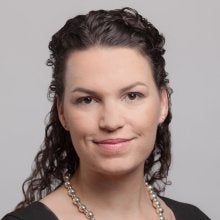
The College also offers an endorsement that enables current special education teachers to teach children with severe disabilities, providing a valuable service to Maryland school districts. Through a ‘double count’ program, select teacher candidates are able to take undergraduate courses that also count for their master’s degrees, allowing students to complete their master’s degrees in a timely manner while working part- or full-time.
Reflecting the importance of mentorship, Dr. Mallory notes the close involvement of College faculty with teaching students, as faculty accompany students to their teaching placements, providing critical support and supervision as students work directly in the field.
Leaders in Teacher Education Policy
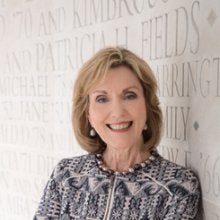

David Imig is a long-standing leader in teacher education, having served as director and CEO of the AACTE for twenty-five years prior to joining the College of Education faculty. A founding member of the National Policy Board for Educational Administration and a former president of the National Society for the Study of Education, he brings important insights on teacher education from leadership in the field to the College of Education.
A Professor of the Practice, his research focuses on teacher education policy in the US and abroad. He also co-directs the College’s Ed.D. program, an innovative, practice-based model that brings together a cohort of school administrators from County school systems. A Senior Scholar for the Carnegie Foundation for the Advancement of Teaching, he co-directs the Carnegie Project on the Education Doctorate (CPED), which involves some 110 research extensive colleges and universities across the country in the transformation of the education doctorate.
Expanding the Educator Pipeline
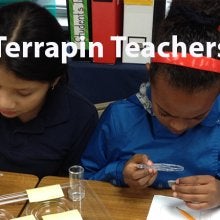
Harnessing the Power of Technology to Improve Teacher Education